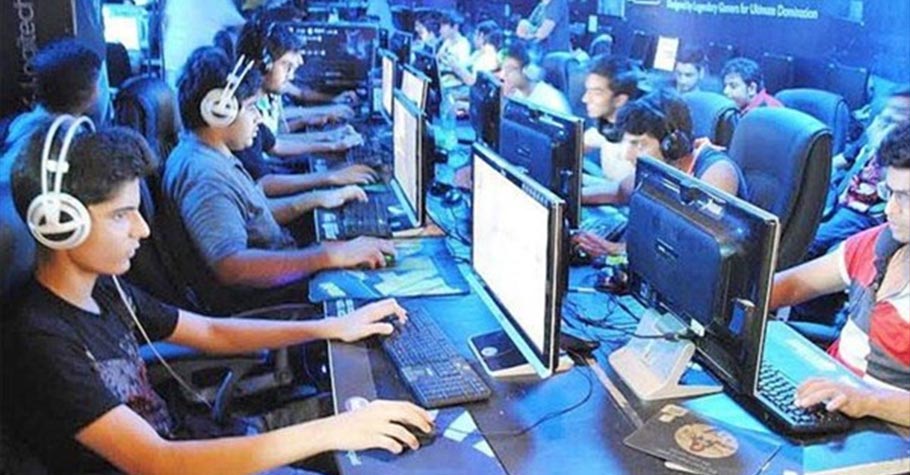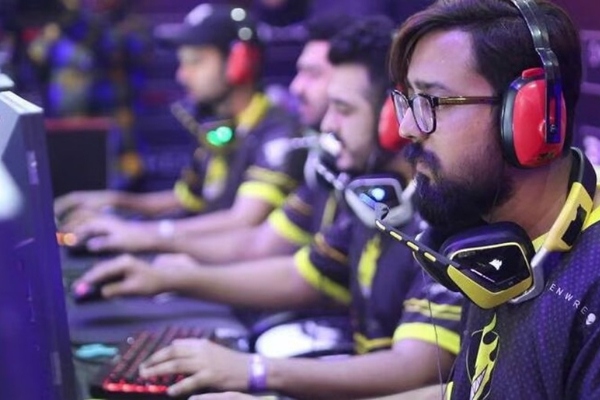 Gambling
Gambling
The Rise Of E-Sports And Card Games In India
In recent years, India has witnessed a remarkable surge in the world of e-sports, transforming from a casual pastime into a thriving competitive scene. As technology advances and internet connectivity becomes more accessible, digital gaming has flourished, drawing in players from every corner of the country. Among the many genres dominating the Indian gaming space, card-based games have emerged as a unique and powerful contender.
From traditional card games like Poker and Rummy to modern digital adaptations like Hearthstone, these games have found a new home within the competitive e-sports arena. The convergence of skill, strategy, and digital innovation has led to a new era where card games are no longer just leisure activities, but serious contenders in the professional gaming world. This evolution marks a pivotal moment for India’s gaming culture, where e-sports and card games are blending to create an exciting new frontier for both players and spectators.
Key Players in the Indian E-Sports and Card Game Arena
India’s gaming landscape has seen a rapid rise in the popularity of card-based e-sports, with a number of platforms and players emerging as key figures in this space. Leading the charge are well-established platforms such as PokerBaazi, MPL (Mobile Premier League), and PokerStars India, which have become household names for competitive card gaming enthusiasts. These platforms offer a wide array of tournaments, from Rummy to Poker, allowing players to showcase their strategic prowess on both national and global stages. Additionally, these platforms are not just about playing games but have also helped foster an ecosystem that includes live streaming, online training, and communities for fans to follow their favourite players.
Several Indian e-sports organisations have also recognised the potential of card games in competitive arenas, with teams and individuals participating in international tournaments. Influential players such as Muskan Sethi and Aditya Agarwal, who have earned their place among global poker elites, are prime examples of how Indian players are making a mark in card-based e-sports. The rise of live-streaming platforms like YouTube Gaming and Twitch has further amplified the reach of these games, allowing fans to follow live tournaments and streamers who specialise in card game strategies.
Interestingly, the overlap between card games and digital innovation has given rise to new trends in the gaming community. While skill-based card games dominate, the integration of digital currencies and blockchain technology in platforms is gradually catching attention, merging the worlds of gaming and finance. Some players and platforms are even exploring opportunities in areas like Crypto casino, blending the thrill of card games with cutting-edge digital currencies, adding another layer of excitement to the Indian gaming scene.
The combination of strong player performance, advanced platforms, and the growing influence of new technologies ensures that the Indian card gaming scene continues to evolve and thrive in the competitive e-sports arena.
Factors Driving the Growth of E-Sports and Card Games
The growth of e-sports and card games in India can be attributed to a combination of technological advancements, cultural shifts, and increased accessibility. One of the primary drivers is the rapid expansion of high-speed internet across the country, making online gaming more feasible for millions of players. As mobile internet and affordable smartphones have reached even the most remote areas, card-based games such as Poker and Rummy have found a massive audience eager to compete online. Platforms like MPL and PokerBaazi have capitalised on this by offering user-friendly interfaces, tournaments with real-time participation, and lucrative prize pools, making these games more accessible than ever before.
Culturally, there has been a significant shift in how gaming, particularly card games, is perceived. While traditionally viewed as casual or recreational, these games are now recognised for the strategic skill they require. Players are increasingly seeking to refine their tactics, practice regularly, and compete at higher levels, contributing to the competitive gaming ecosystem. This shift in mindset has paved the way for card games to be taken seriously within the e-sports community.

Another key factor is the legal framework surrounding skill-based games in India. Unlike games of chance, card games that require strategy and decision-making are considered skill-based, providing legal clarity and encouraging more platforms to invest in the industry. This distinction has allowed card games to grow as a competitive sport without the stigma often associated with gambling.
ALSO READ: How To Play Online Betting For Beginners
Moreover, the incorporation of game mechanics from other popular genres is also driving growth. For instance, platforms that host traditional card games are exploring new formats and themes to attract players. Some are introducing features inspired by slot games, like 40 Super Hot, which seamlessly integrate into the card gaming experience, offering players fresh ways to engage while keeping the focus on skill-based competition. These innovations keep the gaming landscape dynamic and appeal to a broader audience.
With increasing investment, evolving perceptions, and continuous innovation, the growth trajectory for e-sports and card games in India shows no signs of slowing down.
Challenges Faced by the E-Sports and Card Game Industry in India
Despite the rapid growth of e-sports and card games in India, the industry faces several significant challenges that hinder its full potential. One of the primary issues is the ambiguity in legal regulations. While skill-based games such as Poker and Rummy are generally legal, there is still considerable confusion surrounding online gaming laws, especially as they vary between states. This regulatory uncertainty often deters international investors and platforms from entering the Indian market, limiting opportunities for growth and development.
Another challenge is the persistent stigma associated with card games, which are often unfairly lumped together with gambling in public perception. Many view these games with scepticism, not understanding the level of skill involved in professional play. This stigma affects the wider acceptance of card games within the e-sports community and prevents it from being taken as seriously as other competitive genres, such as first-person shooters or strategy games.
Infrastructure issues also pose a significant barrier. India still lacks the sophisticated infrastructure required to host large-scale e-sports tournaments for card games. While platforms and players are growing, there is a need for better gaming venues, stronger internet connectivity in certain regions, and more streamlined access to competitive events. These infrastructural challenges often limit the ability of talented players to rise to the national or global stage.
Additionally, the integration of new technologies presents both an opportunity and a challenge. As the industry embraces digital currencies and blockchain for secure, transparent transactions, there is still hesitation among players and platforms about the long-term implications. Innovations like Crypto casino Aviator offer an exciting new dimension to gaming by combining the worlds of e-sports and digital currencies, but they also raise concerns around regulatory acceptance and player education on these emerging trends.
Overall, while the Indian e-sports and card game industry shows immense promise, overcoming these challenges will require clearer regulatory frameworks, improved infrastructure, and a cultural shift in how these games are perceived. Addressing these issues will be key to unlocking the full potential of the competitive card gaming sector in India.
Future of E-Sports and Card Games in India
The future of e-sports and card games in India is brimming with potential as the country continues to embrace digital innovation and competitive gaming culture. With the rapid expansion of internet connectivity and the rise of mobile-first gaming platforms, India is poised to become one of the global leaders in the e-sports space. The increasing popularity of card-based games, such as Poker and Rummy, alongside their integration into the e-sports ecosystem, is paving the way for a unique blend of skill, strategy, and entertainment that appeals to a broad audience.
One of the most exciting prospects for the future is the continued development of large-scale tournaments and leagues focused on card games. With more platforms recognising the immense interest in competitive card gaming, we are likely to see the rise of specialised tournaments with bigger prize pools, more professional teams, and greater media coverage. This, in turn, will attract more sponsors and investors, fuelling the growth of the industry even further. The expansion of e-sports arenas and the improvement of gaming infrastructure will also allow India to host international competitions, putting the country on the global e-sports map.
Technological innovation will continue to play a significant role in shaping the future of card games in the e-sports arena. Virtual reality (VR), augmented reality (AR), and blockchain technologies are expected to introduce new gameplay mechanics and enhance the overall gaming experience. As digital currencies and secure payment methods become more widespread, players and platforms will be able to explore new opportunities for in-game transactions and rewards, further elevating the gaming ecosystem.
The cultural perception of card games is also likely to shift as more players, streamers, and influencers highlight the strategic depth involved in these games. As public understanding of the skill required in competitive card gaming grows, so will its legitimacy as a respected e-sport. This shift will encourage a new generation of players to pursue careers in the industry, expanding the talent pool and fostering a vibrant community of professional gamers in India.
In the coming years, India’s e-sports and card gaming industry is set to evolve into a powerhouse, with its unique blend of traditional games and cutting-edge technology offering a promising horizon for players, fans, and investors alike. As the country continues to embrace these opportunities, the future of e-sports and card games in India shines brighter than ever.
For more such articles related to E-Sports, keep reading GutshotMagazine.com. Follow us on Facebook, Instagram, Twitter and Telegram.
Gutshot Magazine is India’s leading real money gaming magazine that covers news, updates, previews, highlights, features and much more across verticals like poker, rummy, and fantasy sports. Our rich history that has spanned over a decade now, Gutshot Magazine has always tied up with events and tournaments that have helped push the awareness of skill gaming in the country. If you are looking for the latest updates across real money gaming, then you have arrived at the perfect destination.
More News
Comments
Top 15 Fantasy Sports Sites
-
Kubera Fantasy
Use referral code GUTSHOT
Offer: Get Instant ₹100 FREE Register -
PlayerzPot
First deposit on PlayerzPot
Offer: Get 100% bonus up to ₹10,000 Register -
Fantasy Akhada
4% commission on friends' deposits
Offer: Sign-up & get ₹500 FREE Register -
BalleBaazi
Sign-up Now
Offer: Get ₹50 FREE Register -
My11Circle
Download the app
Offer: Get ₹1,500* FREE Register
























